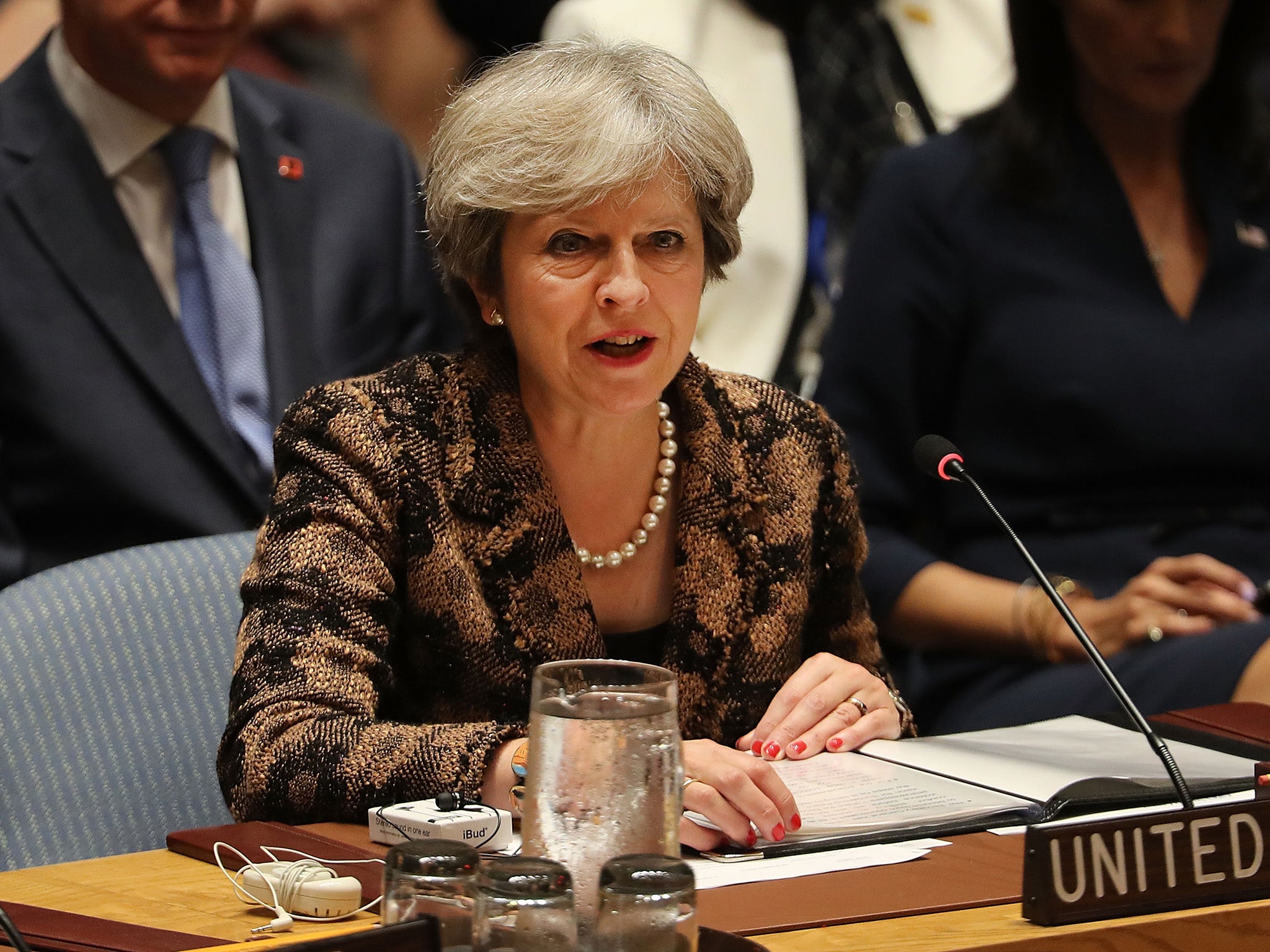Brexit: Theresa May take swipe at Michel Barnier by insisting national leaders will decide on deal
'The decision will always be one that will be taken by the leaders' prime minister says

Your support helps us to tell the story
From reproductive rights to climate change to Big Tech, The Independent is on the ground when the story is developing. Whether it's investigating the financials of Elon Musk's pro-Trump PAC or producing our latest documentary, 'The A Word', which shines a light on the American women fighting for reproductive rights, we know how important it is to parse out the facts from the messaging.
At such a critical moment in US history, we need reporters on the ground. Your donation allows us to keep sending journalists to speak to both sides of the story.
The Independent is trusted by Americans across the entire political spectrum. And unlike many other quality news outlets, we choose not to lock Americans out of our reporting and analysis with paywalls. We believe quality journalism should be available to everyone, paid for by those who can afford it.
Your support makes all the difference.Theresa May has risked accusations of seeking to divide the EU over the Brexit talks by pointing out national leaders – not the Commission – will decide on any deal.
The Prime Minister appeared to try to play down the importance of Michael Barnier, the Commission’s chief negotiator, who has strongly criticised Britain’s intransigence at the negotiating table.
Earlier this month, Mr Barnier said hopes of an autumn breakthrough had hit rock bottom, primarily because of Britain’s failure to agree the so-called divorce bill.
“It seems to be backtracking on the original commitment of the UK to honour its international commitments,” he said. “There is a problem of confidence here.”
But, speaking to reporters in New York, the Prime Minister went out of her way to set out who she believes pulls the power strings in Brussels.
She said: “The negotiations are structured within the EU so, of course, the Council has delegated with a mandate to the Commission, and the Commission has appointed Michel Barnier. But the decision will always be one that will be taken by the leaders.”
Many Conservatives hope German Chancellor Angela Merkel, under pressure from her country’s big manufacturers, will lead a push for a future trade deal with the UK.
Their belief is that the need to avoid economic damage on both sides from Britain leaving the EU with no deal will trump the stated requirement for Ms May to first settle her bills.
However, publicly, the EU 27 and the Commission have remained united on the negotiating stance they jointly agreed earlier this year.
Indeed, some warned that any attempt to “blackmail and divide” the EU would backfire and increase the risk of disastrous crash-landing out of the bloc for the UK.
Furthermore, in publicly accepting the “mandate to the Commission”, Ms May is abandoning her earlier threat to negotiate directly with elected leaders, to try to strike a quicker deal.
Aides played down suggestions that any progress would be made in one-to-one talks with some EU leaders in New York, saying the focus would instead be international problems.
Mrs May met with French President Emmanuel Macron and Paolo Gentilonie, the Italian prime minister, but failed to meet the Dutch leader, Marc Rutter, because of a lack of time.
Later this week, in Florence, the Prime Minister, will attempt to break the deadlock in the talks, perhaps by conceding Britain will first have to agree a multi-billion pound financial settlement.
The negotiations will then resume next Monday, having been shelved for a week in the hope of a “significant intervention” from Ms May.
Join our commenting forum
Join thought-provoking conversations, follow other Independent readers and see their replies
Comments